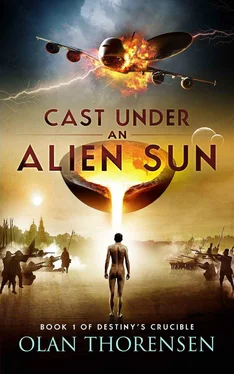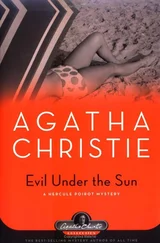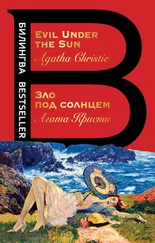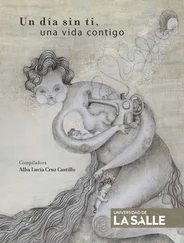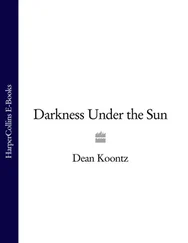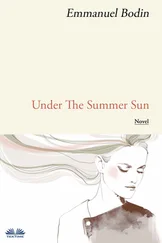“Of course, I will! It’s Keelan land, and it’s a point of honor.”
“And you’re not influenced by your feelings about Hetman Moreland?”
“He’s a vile piece of animal excrement, a disgrace to all of Caedellium, a tyrant to this people, and no, my opinion of him doesn’t change that I can’t let him steal Keelan land.”
“Correct me if I’m wrong, Father, but isn’t the land a piece of swamp with no practical use? Would it really hurt the clan to lose so little land of so little value?”
“The value is irrelevant,” snarled Culich. “It’s the principle!”
“With all your worries about what’s happening with the Narthani and the Selfcell and Eywell clans, is this issue with Moreland important enough to divert attention at the All-Clan Conclave next month? If the two of you get into a shouting match, what effect will this have when you try to convince the other hetmen of the Narthani danger?”
Culich flushed. “When I want your opinion on how to serve the clan, I’ll ask you!” he ground out.
Maera didn’t respond, sitting with hands folded in her lap, a serene face waiting. He glared back. Neither spoke for several minutes until Culich’s ire faded, and he sat back with a deep breath. Another minute passed, along with longer breaths by Culich.
He cleared his throat. “Uh . . . I’m sorry I snapped at you, Maera. I shouldn’t have said what I did. You know I value your thoughts. It’s just that damned Gynfor Moreland and his two sons. The Word tells us not to judge, but I’m afraid I fail when it comes to them.”
“ All of the Moreland family?” Maera chided.
“All right, all right. Most of them. I make an exception for Anarynd Moreland.”
A smile warmed Maera’s face, both at the thought of Ana and at being right that bringing up Ana’s name would soften her father’s mood. It had taken him some time to accept that his daughter’s best friend was a Moreland, albeit from a minor collateral branch of the Moreland Hetman’s family, and longer still before he would admit that he actually liked the girl, even if she was a Moreland.
“And you’re right to caution about arguing too much about a worthless piece of land when there are more urgent issues. Still . . . it would gall me no end to agree to let Gynfor Moreland take even an inch of Keelan land.”
Maera smiled again, the curl of her lips and lilt in her eyes alerting her father she had something devious to add. Which she did. “In looking at old records, I found the offending stream has changed course numerous times over the last century. In fact, it changes course about every ten to twenty years and usually runs two miles north .”
“North?” Culich echoed, his thoughts churning over the new piece of information. “That . . . that means . . . ” His face crinkled with a smile and a narrowing of eyes, as he looked at his daughter. “If I agree to cede this little piece of worthless land now, then the next time the stream shifts north, Moreland will face this precedent of taking the stream bed as the boundary.”
The twinkle in Maera’s eyes was unmistakable. “And unless I am wrong, the land to the north is good farmland.”
The hetman sat back in his chair and roared with laughter. “Oh, Merciful God!” he choked out. “May I and Gynfor Moreland still be alive when it happens!”
* * *
Culich recollected that day and how much he depended on Maera. A secret Culich shared only with his wife, Breda, was that often Maera gave as many useful comments as all of his advisors and boyermen. Not always better advice, but from a different perspective and with broader views of many issues. Culich often rued she hadn’t been born a son. What a hetman she would have made! he thought many a time. However, traditions were that the hetman was a man—not a hetwoman. That Culich and his wife, Breda, didn’t have sons was a point of potential conflict within any clan. Ascendency struggles and even intra-clan feuds and savage fighting had happened too often in Caedellium history.
Clan Keelan avoided such problems by careful plans laying out paths of succession. No one doubted the four daughters of Culich and Breda Keelan would produce grandsons. From these, Culich would anoint a successor. Fortunately for Clan Keelan, their custom didn’t follow strict primogeniture, as did some clans—a custom too often leading to mediocre hetmen, since being firstborn was no criterion for ability. For every truly qualified firstborn successor, there were those either incompetent or even disastrous. For Clan Keelan, Culich would see to the training of all of the grandsons and choose the one he believed most qualified to be the next hetman. Although the boyermen had to confirm the choice, only one recorded case of a rejection was quickly followed by acceptance of the hetman’s second choice among fourteen grandsons.
Culich and everyone who knew Maera assumed one of her sons would become the next hetman. The flaw in this assumption was her not yet having married. Although frowned upon, children outside of formal marriage were not uncommon—but not for a hetman’s family. The need to maintain security of succession lines and minimize clan and inter-clan political complications was paramount. Normally, the daughter of a hetman, particularly of a clan as prominent as Keelan, would have numerous suitor options with appropriate political advantages to the clan. Maera understood her duty and from an early age assumed her eventual marriage would be managed for the good of their people. Her father wouldn’t force a marriage she objected to, but she knew and accepted her obligations . . . at least intellectually. What she felt in her heart of hearts not even her parents were sure of, since she held close her innermost feelings.
Whatever those feelings, Maera played her assigned role, to a degree. However, she herself was an impediment to finding a suitable marriage. A number of potential candidates, sons of other hetmen, boyermen, even a few from families wealthy enough to tempt drawing into connections to the hetman line had come and gone. In spite of the advantages of marrying one of their scions into the hetman’s family and perhaps producing a son who might become hetman himself, it often took only a single meeting with Maera to dissuade suitors. Not that she was uncomely. She was of medium height with a slender feminine form, lustrous brown hair, a natural grace, and a warm personality, when she showed it. It was that qualification that was a problem, since that warmth was not displayed as often as Culich would have liked, especially with suitors. Word came to Culich more than once of potential suitors returning home to report that the Keelan Hetman’s oldest daughter was disrespectful, was condescending, and had a smart mouth. Compounding the problem was that they weren’t completely wrong. She was smarter than any of them and knew it, and so did they. Despite her efforts, it didn’t take long for the men to realize she was their intellectual superior and a woman not able or willing to keep opinions to herself. For those potential suitors she might have liked well enough, it became a familiar pattern: initial interest faded to uneasiness, to coolness, and, finally, to a polite regret they had to leave so soon and how nice it was to meet her. They were never heard from again.
Those were the best cases. There were also men too oblivious to recognize that Maera was not overawed by their masculinity or family station, or they thought the marriage decision was theirs alone. Several had escaped, figuratively, with their lives.
There had been no suitors now for six months. Culich hadn’t pressed Maera, given the history, and in spite of himself he depended more and more on her help. He hadn’t yet shared one troubling thought, not even with his wife, but he wondered if Maera would ever marry. There was no denying—she was different. He blamed himself to a degree. She had always been a precocious child. He had gained satisfaction out of having produced her, and his indulgences had fed her independence. He consoled himself that maybe neither he nor Maera had had a choice. Maybe Maera turned out to be who God intended. He had three other daughters, the next oldest coming to an appropriate age for the first suitors. There would be grandsons, even if not from his eldest child.
Читать дальше
